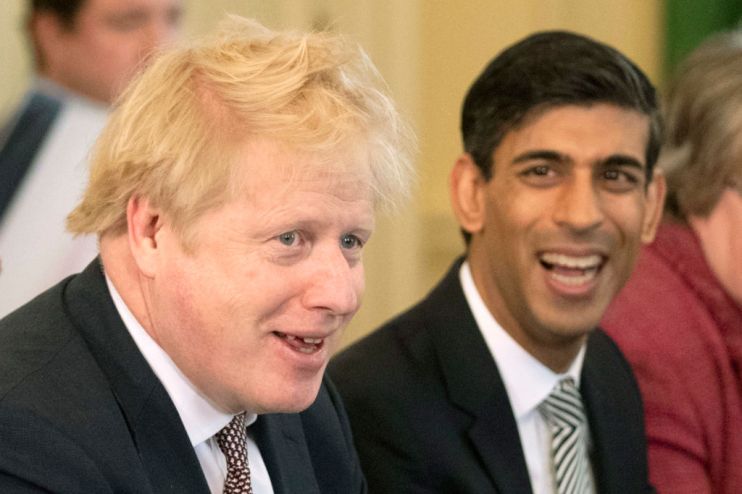Question marks surround Boris Johnson’s first budget

The timing and content of the forthcoming budget was thrown into doubt this weekend, with the government refusing to confirm either the date of the announcement or that the current spending limits would remain in place.
Boris Johnson is considering scrapping fiscal spending rules written just months ago as Number 10’s plans to take greater control of the Treasury begin to take shape.
Former chancellor Sajid Javid wrote the rules into the Tories’ 2019 election manifesto in an attempt to exercise fiscal restraint amidst a swathe of spending pledges.
The primary rules were promises to have a balanced budget on day-to-day departmental spending by 2023 and to keep borrowing to fund capital projects at 3 per cent of GDP or below.
This allowed the Prime Minister to pledge £100bn of infrastructure spending at the election, with £22bn of it already earmarked for projects.
However, Johnson and new chancellor Rishi Sunak – in post after Javid resigned last week – are now set to meet on Tuesday to discuss easing both of these rules in order to open the spending taps even further, according to the Sunday Times.
The pair will also discuss whether to push back the 11 March budget to a later date in order to let Sunak get to grips with his new job. Transport secretary Grant Shapps refused to confirm that the date, which had been inked into diaries, would not change.
Number 10 reportedly wants to change the day-to-day spending rules to increase NHS and social care expenditure, while easing the capital projects rule would indicate Johnson wants to push his infrastructure programme even further.
Tej Parikh, Institute of Directors chief economist, said: “Businesses have been eager for infrastructure upgrades, but that doesn’t mean writing a blank cheque.
“There’s a strong case for promoting projects in the North and Midlands, but there still needs to be a robust framework in place.”
Javid was informed of the proposal on Tuesday last week, but pushed back against the move.
By Thursday, he was out of a job after refusing to accept Johnson’s request that all of his staff be sacked and replaced by people of his office’s choosing.
When asked about a potential change in fiscal rules, Number 10 said: “We will continue to have a clear fiscal framework — that is confirmed at the Budget.”
Oxford Economics chief economist Andrew Goodwin said the prospect of a more expansionary budget had already had a positive effect on markets, with Sterling and bond yields increasing on Friday.
“The logic behind the market moves was that the switch [between Sunak and Javid] was more likely to result in looser fiscal policy and thus reduce the chances of an interest rate cut,” he said.
Institute for Economic Affairs editorial and research fellow Professor Len Shackleton was less optimistic about the potential changes.
“Reports the government may relax its fiscal rules in favour of public spending hikes – most likely funded through additional borrowing – risk undermining the work done over recent years to rein in the country’s budget deficit,” he said.
“Treasury rules aim to ensure a significant return for public expenditure and shouldn’t be relaxed when the benefits are uncertain and the tax burden is already at a near 50-year high.”
The Treasury declined to comment.